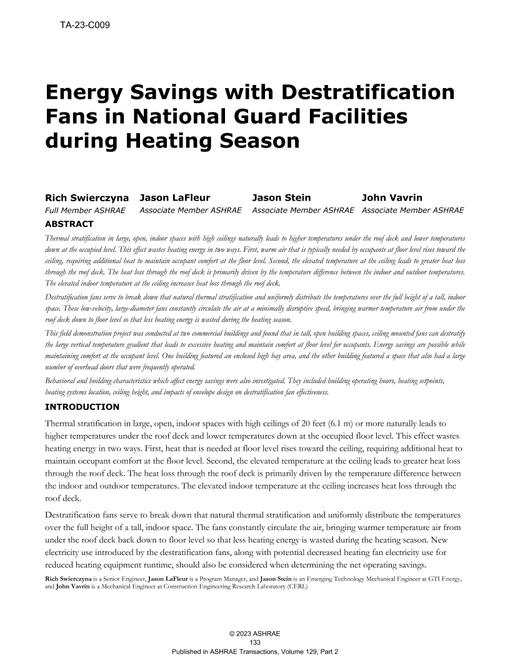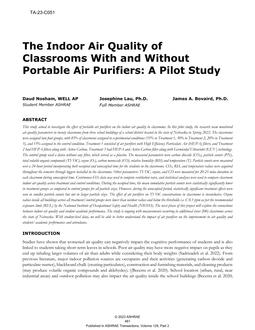-
-
Available Formats
- Options
- Availability
- Priced From ( in USD )
-
Available Formats
-
- Immediate download
-
$16.00Members pay $7.00
- Add to Cart
Customers Who Bought This Also Bought
-

TA-23-C004 – A Simulation Framework for Analyzing the Imp...
Priced From $16.00 -

TA-23-C009 – Energy Savings with Destratification Fans in...
Priced From $16.00 -

TA-23-C099 – Open Building Operating System: An Open-Sour...
Priced From $16.00 -

TA-23-C051 – The Indoor Air Quality of Classrooms With an...
Priced From $16.00
About This Item
Full Description
Occupancy-centric HVAC controls (OCC) and occupancy sensing technologies have emerged as a potential solution for enhancing residential energy efficiency. This paper conducted a field-testing study in an apartment in College Station, TX, to evaluate the impact of OCC on HVAC energy savings and occupant thermal comfort in a residential environment. A prototype occupancy sensor was integrated with a Raspberry Pi microcontroller to adjust the temperature setpoint in real-time based on occupancy information. Formal testing occurred for approximately five months, from January 31st to July 3rd, 2022, with the control modes switched between baseline and OCC weekly to mitigate the influence of outdoor weather conditions on HVAC energy savings ratios. The results showed a 15.8% reduction in HVAC energy consumption between March and July due to OCC, but no savings were observed in January and February, as the testing apartment was mostly occupied during the period. The analysis revealed a slight increase in setpoint not met hours during the night, potentially due to false negatives, but this effect was not significant during daytime periods. Although residents reported a small decrease in thermal comfort and IAQ with occupancy-centric controls, the impact was not substantial.





